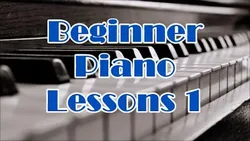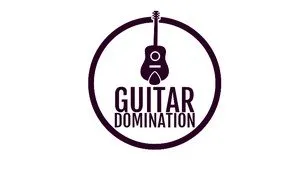
Piano I: Introduction to the Piano & Staff 
This course is an introduction to playing the piano and reading music. It consists of five sessions with video lectures, practice assignments, graded assignments, concert reviews, and a final exam. Students will learn the basics of music theory, ear training, and piano technique. They will also have the opportunity to practice their skills and demonstrate their knowledge through improvisation. ▼
ADVERTISEMENT
Course Feature
![]() Cost:
Cost:
Free
![]() Provider:
Provider:
Kadenze
![]() Certificate:
Certificate:
Paid Certification
![]() Language:
Language:
English
![]() Start Date:
Start Date:
On-Demand
Course Overview
❗The content presented here is sourced directly from Kadenze platform. For comprehensive course details, including enrollment information, simply click on the 'Go to class' link on our website.
Updated in [May 25th, 2023]
This course, Piano I: Introduction to the Piano & Staff, provides an introduction to playing the piano and reading music. It consists of five sessions, each containing a video lecture presented by the Instructor, piano practice assignments, graded assignments, and a final exam. The graded assignments include a quiz about music terms, theory and/or ear training, a video assessment of the student playing selected piano technique and repertoire, and two concert reviews. The final exam requires the student to improvise a piece.
[Applications]
Students who complete this course will have a basic understanding of the piano and music notation, as well as the ability to read and play simple pieces. They will also have a better understanding of music theory and ear training. The application of this course could include playing for personal enjoyment, performing in a recital, or auditioning for a music program. Additionally, students may use the knowledge gained in this course to compose their own music or to teach others.
[Career Paths]
1. Piano Teacher: Piano teachers provide instruction to students of all ages and skill levels. They teach students how to read music, play the piano, and develop their technique. As technology advances, piano teachers are increasingly incorporating digital tools into their lessons.
2. Music Composer: Music composers create original music for a variety of mediums, including film, television, video games, and live performances. They must have a strong understanding of music theory and composition techniques, as well as the ability to work with a variety of digital audio software.
3. Music Producer: Music producers are responsible for overseeing the production of music recordings. They work with artists to create the best possible sound, and they are responsible for selecting the right instruments, recording techniques, and mixing and mastering the final product.
4. Music Therapist: Music therapists use music to help people with physical, emotional, and mental health issues. They use music to help people express themselves, reduce stress, and improve their overall wellbeing. Music therapists must have a strong understanding of music theory and the ability to work with a variety of people.
[Education Paths]
1. Bachelor of Music: A Bachelor of Music degree is a four-year program that provides students with a comprehensive education in music theory, composition, performance, and music history. Students will learn to read and write music, develop their improvisational skills, and gain an understanding of the history and development of music. This degree is ideal for those who wish to pursue a career in music performance, composition, or teaching.
2. Master of Music: A Master of Music degree is a two-year program that provides students with advanced training in music theory, composition, performance, and music history. Students will develop their improvisational skills, gain an understanding of the history and development of music, and learn to read and write music. This degree is ideal for those who wish to pursue a career in music performance, composition, or teaching.
3. Doctor of Musical Arts: A Doctor of Musical Arts degree is a three-year program that provides students with advanced training in music theory, composition, performance, and music history. Students will develop their improvisational skills, gain an understanding of the history and development of music, and learn to read and write music. This degree is ideal for those who wish to pursue a career in music performance, composition, or teaching.
4. Music Technology: Music Technology is a rapidly growing field that combines music and technology. This degree program provides students with the skills and knowledge to create, produce, and manipulate music using digital technology. Students will learn to use software and hardware to create and manipulate sound, as well as develop their understanding of music theory and composition. This degree is ideal for those who wish to pursue a career in music production, sound engineering, or music technology.
Course Provider

Provider Kadenze's Stats at AZClass
Discussion and Reviews
0.0 (Based on 0 reviews)
Explore Similar Online Courses

Tour of the Solar System

Introduction to Criminal Justice

Python for Informatics: Exploring Information

Social Network Analysis

Introduction to Systematic Review and Meta-Analysis

The Analytics Edge

DCO042 - Python For Informatics

Causal Diagrams: Draw Your Assumptions Before Your Conclusions

Whole genome sequencing of bacterial genomes - tools and applications

Piano Lessons For Beginners Series - How To Play Piano

Guitar Performance Techniques

A beginner`s guide to fingerpicking and strumming guitar"
 Related Categories
Related Categories
 Popular Providers
Popular Providers
Quiz
 Submitted Sucessfully
Submitted Sucessfully
1. What type of graded assignments are included in the course?
2. How many sessions are included in the course?
3. What type of assessment is included in the final exam?


Start your review of Piano I: Introduction to the Piano & Staff